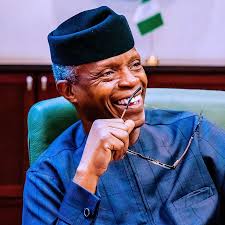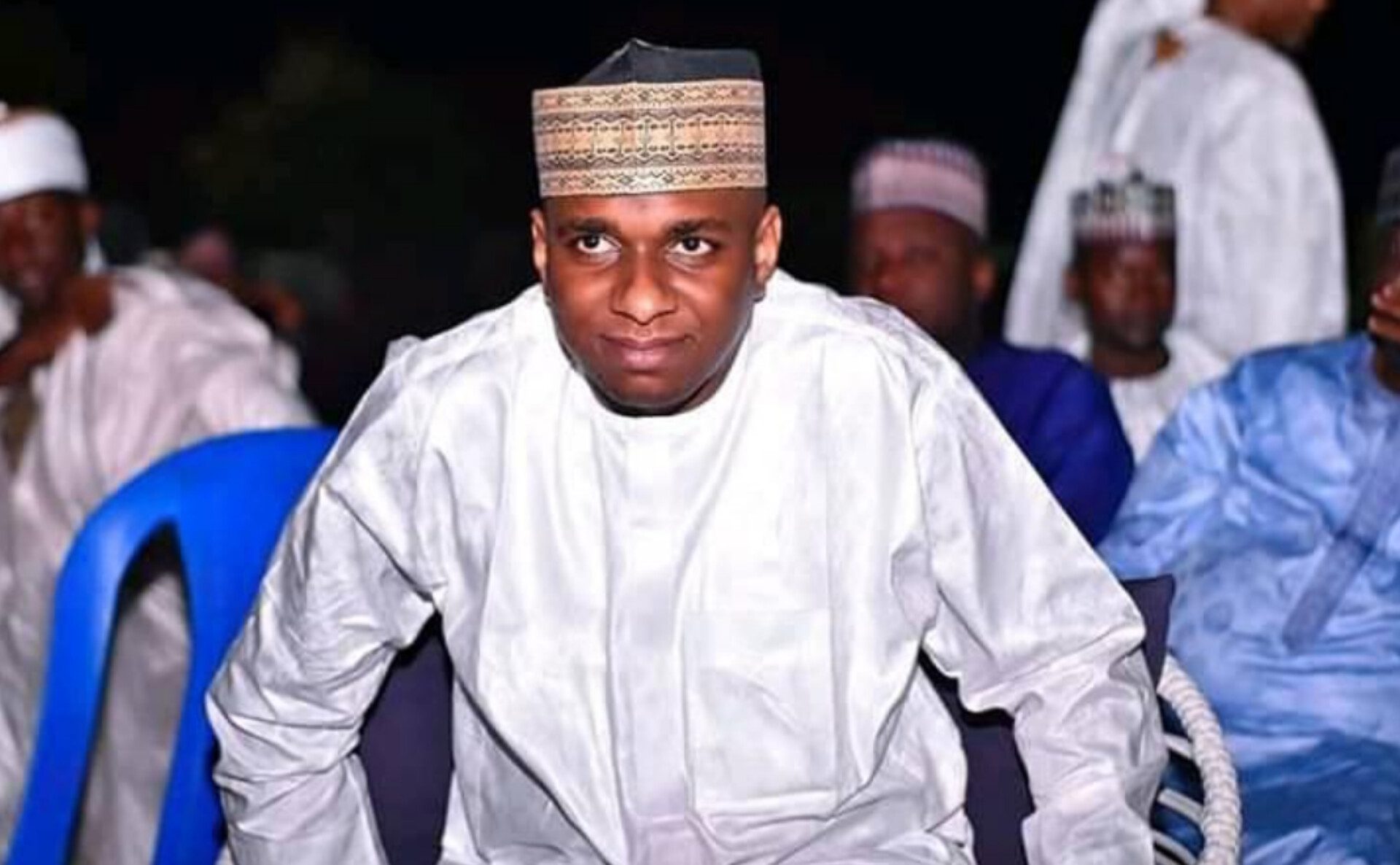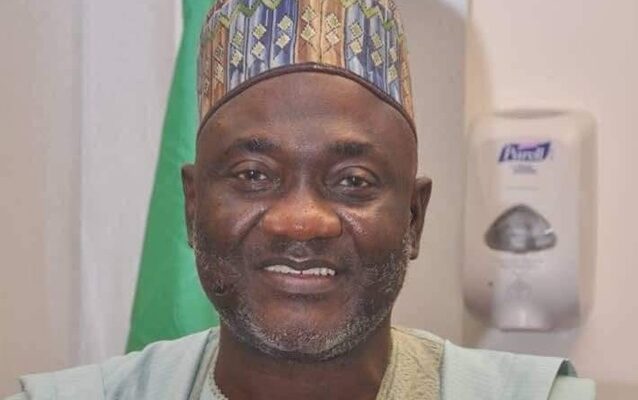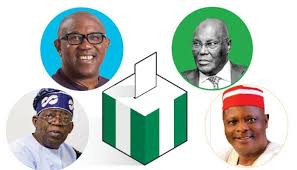By Olawale Olaleye
Since his emergence as Nigeria’s number-two citizen, different accounts had been flying around on how Professor Yemi Osinbajo, actually secured the coveted vice-presidential slot, a majority of which revolved around the person of Asiwaju Bola Tinubu, his former boss. Indeed, the recent revelation by Chief Bisi Akande in his book, “My Participations” was equally slanted to further pin down the narrative.
You may recall that in 2016, Professor John Paden, authored a biography, ‘Muhammadu Buhari: The Challenges of leadership in Nigeria’, where he dismissed speculations that Tinubu, influenced the emergence of Osinbajo as Buhari’s running mate, but contended that Buhari, instead, chose Osinbajo despite a lot of pressure from Tinubu, who was interested in the position. That book raised a lot of dust and as expected, Tinubu’s soldiers went for the professor.

But, regardless of whichever version you must have read or heard, what you are about to read now is the untold story of how Professor Osinbajo, became Buhari’s running mate and eventually, the Vice President of the Federal Republic of Nigeria.
It happened that the All Progressives Congress (APC) was almost running against the deadline for the submission of names of its candidates ahead of the 2015 presidential election. There was no debate about its presidential candidate, Muhammadu Buhari, who had emerged at a convention held in Lagos in December of 2014. But the party had been held hostage on its choice for the running mate.
In the forefront of the confusion that had ensued as a result was Tinubu, who didn’t hide his desire to fill the slot. He hinged this on the understanding he allegedly had with Buhari in the early days of their proposed alliance, before the merger that eventually culminated in the formation of the APC, now boasting several other tendencies.
With a bigger house made possible by what was known as the ‘legacy parties’ and other individuals, who championed the change movement, a Muslim/Muslim ticket had become arguably impracticable.
This much was canvassed by a majority of the actors with stakes in the party, especially, with the increasing attacks from the Boko Haram terrorist group. They had considered a Muslim/Muslim ticket a very hard sell.
However, with 24 hours to deadline for submission of names, coupled with the fact that Tinubu had made a smooth choice of a running mate nearly impossible, including the fact that he was made to chair a selection committee, which failed to fly, because of his vested interest, Buhari then decided to take the bull by the horn, being the candidate.
While the underhand intrigues subsisted, Buhari had set up a team of some persons, including a former governor of Zamfara State, Abdul-Aziz Yari; former President of the Senate, Dr. Bukola Saraki; incumbent Governor of Sokoto State, Aminu Tambuwal and his predecessor, Magatakarda Wamakko, amongst others to shortlist names of likely candidates for him, from the South.
Interestingly, it seemed there was a consensus that with the role of the Southwest, the running mate must come from the zone, reason other interested folks from other parts of the country could not fly.
The committee had completed its work and submitted a list of three names to Buhari. First on the list is a former Osun State governor, Prince Olagunsoye Oyinlola, followed by Senator Olorunimbe Mamora and third, Professor Yemi Osinbajo. Please, follow the trend and how Osinbajo’s name first featured in the 2015 theatrics.
Armed with the list and wary of the deadline staring him in the face, Buhari left for Tinubu’s house in Abuja, first to explain that a Muslim/Muslim ticket was not going to fly, meaning he would be unable to run with him and that in the alternative, he (Tinubu) could recommend anyone from the list to him as his preferred choice for the slot. At least, he thought it was okay to do him that honour.
Unfortunately, Tinubu didn’t receive the news well and flared up so bad that he was alleged to have engaged in war of words with Buhari, who stormed out of his house, after Tinubu had insinuated betrayal. Amongst those in Tinubu’s house at the time were Chief Bisi Akande, Rauf Aregbesola and Adams Oshiomhole. But only Oshiomhole walked Buhari to his car as he made to leave the house.
From Tinubu’s house, Buhari stopped over at the home of a former governor from the Southern part of the country and told him all that transpired, and went back home – angry and disappointed.
Getting home, he sent for Saraki and when the former Senate President got to his place, he narrated what happened and the embarrassment meted out to him, saying if Tinubu wanted a fight, he was ready and he would give it back in full dose.
But Saraki pleaded with him that it was too early and that the situation was not what they couldn’t manage well before the elections. Saraki immediately contacted a former Ogun State governor, Senator Ibikunle Amosun, and hinted him that there was fire on the mountain and that he needed to come around to join forces with him to manage the situation. Amosun left his home in Abeokuta, first for Lagos and then Abuja, and straight to Buhari’s home.
Thus, when he got there, he was intimated with all that had happened, but he was particularly worried about deadline and pleaded with Buhari to let him take it over from there. So, he left for Tinubu’s place to close the deal.
By the time he got to Tinubu’s residence, Oshiomhole had left but still with him were Baba Akande and Ogbeni Aregbesola. Typical of Amosun, who would not waste time on anything, he told Tinubu that Buhari’s mind was already made up, but that he should decide now, who he wanted as the running mate, at least, that only the individual he chose would be presented to Buhari and not give him the pleasure of choosing from a list.
Still angry and disappointed, the first person Tinubu suggested in that rage was Oshiomhole. But as if planned, there was almost a unanimous opposition from everyone in the room. Then, Aregbesola suggested Osinbajo and he (Tinubu) opposed it, saying Osinbajo was one of those, who campaigned against a Muslim/Muslim ticket and must therefore not benefit from it.
Now, let’s digress a bit. Tinubu’s anger against Osinbanjo was this. The former Lagos governor had set up a team of persons close to him to ponder the Muslim/Muslim idea and the best way to push it forward. Those on the team included Professor Yemi Osinbajo, Senator Tokunbo Afikuyom, Mr. Wale Edun, Mr. Dele Alake and Mr. Dapo Thomas. The team met regularly at a private Guest House on the Island, Ikoyi to be precise.
But Osinbajo had during one of their meetings said pointedly that there was no way he would defend a Muslim/Muslim ticket in good conscience especially, with the state of security in the country. He asked on what account would he go back to his family and say he was part of such a decision? Of course, Tinubu got a feedback from the team and held it against him, even though Osinbajo didn’t mean any harm.
Therefore, at the mention of Osinbajo, he revolted almost instantly. But he needed to give a name and time was fast going before deadline. So, he asked to see the list brought by Buhari and on sighting it, he said, “Okay, let’s run with Oyinlola.” To that too, Baba Akande protested and it was back to square one.
Again, Aregbesola prevailed and contended that, like it or not, Osinbajo remained a member of Tinubu’s political family and therefore, still his best bet. After a few minutes of grumbling, he reluctantly agreed to Osinbajo. And Amosun asked him repeatedly if it was a deal and he responded in the affirmative. Final answer kind of thing! Mamora was not even to be considered as far as Tinubu was concerned. Those who know Lagos politics would understand why.
When he finally agreed to Osinbajo, Aregbesola even pleaded to be given the honour of being the person to break the news to Osinbajo. But Amosun didn’t have the patience to acquiesce to that request. For him, time was of the essence and that assignment was handled business-like. Therefore, how Baba Akande handed them a note with Osinbajo’s name and ordered them to Buhari is still a mirage. Besides, Aregbesola did not go with him.
Anyway, in the presence of all, Amosun made a call to Osinbajo to ask, where he was and that a plane would be sent to convey him now to Abuja. But, incidentally, Osinbajo replied that he was in Abuja already, because he had a case at the Supreme Court.
Great, everything seemed to be working together for good, he reckoned. Then asked him to come immediately to Ogun House in Abuja, and when he arrived, he first congratulated him saying, “You’re the next vice-president of Nigeria.”
With a confounding gaze, he conveyed him in his (Amosun’s) car and drove straight to Buhari’s house, with Kemi Adeosun, former Minister of Finance, sitting in front of the car.
Getting to the candidate’s residence, Amosun asked Osinbajo to wait downstairs, while he went upstairs to see the president and told Buhari: “I have him sir,” and Buhari asked: “Who?” and he replied: “Your running mate”.
The APC candidate then came downstairs, where he first met with Osinbajo for the first time as introduced to him by Amosun and immediately, ushered them to a sitting area in the kitchen, where his nomination form was filled in a hurry.
Osinbajo, filling his form in Buhari’s dinning area, was guided by Mrs. Adeosun, Amosun and Sarki Abba, one of Buhari’s domestic staff, to hasten up the process. Buhari, too, was there watching them complete the process.
This is why for those, who know the story, how Osinbajo later turned out to be Amosun’s enemy remains a mystery to them. But with this insider picture of how Osinbajo ‘walked from Lagos to Abuja’, readers can now decide by themselves, the person, who actually made Osinbajo the vice president. To do this, however, five centres must be factored into account.
The first is the team set up by Buhari, which included him amongst the three potential candidates. The second is Aregbesola, who consistently mentioned him until it was approved. The third is Tinubu, who reluctantly agreed to his choice, without which they probably would have been unable to move on.
The fourth was Amosun, who had to run a major and serious race from Abeokuta to Lagos and Abuja to make sure that phase in the life of APC was closed. The fifth and most important is Buhari himself. He could have rejected him if he wanted to. After all, he was going to be working with him and definitely should have a say in the choice of his partner.
But if you asked this writer, no one person made Osinbajo vice president. The coming together of everyone as designed by God did the job. Therefore, no one person can claim the glory. This, in a nutshell, is the story of Osinbajo’s journey to the seat of power, Abuja.
All the additions and facts deliberately mutilated by Baba Akande are curious. But, it is understandable. Above all, if you are in doubt, many names are mentioned here as witnesses to the journey, you can check with them all.
*Olaleye, a newspaper Editor writes from Lagos




